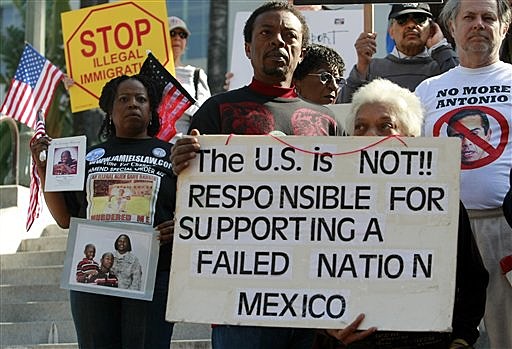The predictable furor over President Obama’s executive order offering relief to approximately 5 million undocumented immigrants has obscured the fact that his initiative is much bolder in form than in content. Obama has gone to extraordinary lengths to offer less than what immigrant advocates have for years been insisting is an absolute necessity: full citizenship.
If Obama’s initiative should prove to be the first step on “the path to citizenship” for these undocumented, it is a hobbled and halting one, and the path long and tortuous. It is difficult to believe that this or any Congress now on the horizon will be willing to affirm Obama’s initiative. Neither is it likely, though perhaps less easy to predict, that Congress will risk the political consequences of rescinding it.
It is even more difficult to imagine a president in the foreseeable future unilaterally granting this population any more than Obama has, apart from perhaps extending the order’s three-year limit. Similarly, the odds are against any future chief executive—especially a Republican—terminating Obama’s program. So rather than direct these 5 million individuals down a path to citizenship, Obama has almost certainly consigned them to legal limbo.
Not surprisingly, immigrant advocates have already started pushing back and demanding more. What is surprising is that the undocumented do not seem to share the same sense of urgency. On the contrary, most seem willing to settle for much less than full citizenship—in particular, for legal status that allows them to live here without fear of deportation and to travel back and forth to their country of origin to visit family, which Obama’s order will allow them to do. In other words, the undocumented are not as concerned with attaining citizenship as their advocates have long and strenuously argued.
There is abundant evidence to support this assertion. First, there are ethnographic studies of undocumented immigrants from Ireland, Guatemala, and Mexico, revealing their intentions to return home and their consequent indifference to, or at least ambivalence about, any permanent tie with the United States.
Second, there are the results of the amnesty granted to nearly 2.7 million illegal immigrants by the Immigration Reform and Control Act (IRCA) of 1986. According to data published by the Department of Homeland Security, as of 2009 (nearly a quarter-century after the IRCA amnesty program began), barely 41 percent had exercised the option to become U.S. citizens. The other three-fifths remain legal permanent residents.Read the rest of the story HERE.
If you like what you see, please "Like" us on Facebook either here or here. Please follow us on Twitter here.






3 comments:
People here illegally have been interviewed, and some have said they feel they are too good to be Americans. People living here without personal investment in our county is not a good thing. They drain/fleece our economy to prop up evil governments else where. This lawlessness is NOT good. The end does NOT justify the means. They way you do your life is what makes you good or evil.
Who wants this lawlessness? Some are globalist who see illegal aliens as "cheap" labor for themselves: they expect Americans to support "their" cheap labor in food stamps, transportaion, housing, and health care. We are being robbed coming and going.
And this never addresses the health and criminal dangers of unsafe borders, and so many coming and going from our country, that enemies and villains can hide among them.
The WORST danger is to our ideals and republic. We have no king. We are governed by Law instead. We must demand our laws are enforced. Lawlessness is unfair to legal and police systems. It is wrong, and must stop. Nobody hates good people. We do hate the insult to our national integrity and our firm opposition to slavery.
Human trafficking should have no home or haven in the United States.
I think they just want to work, and raise their family, like everyone else.
Post a Comment